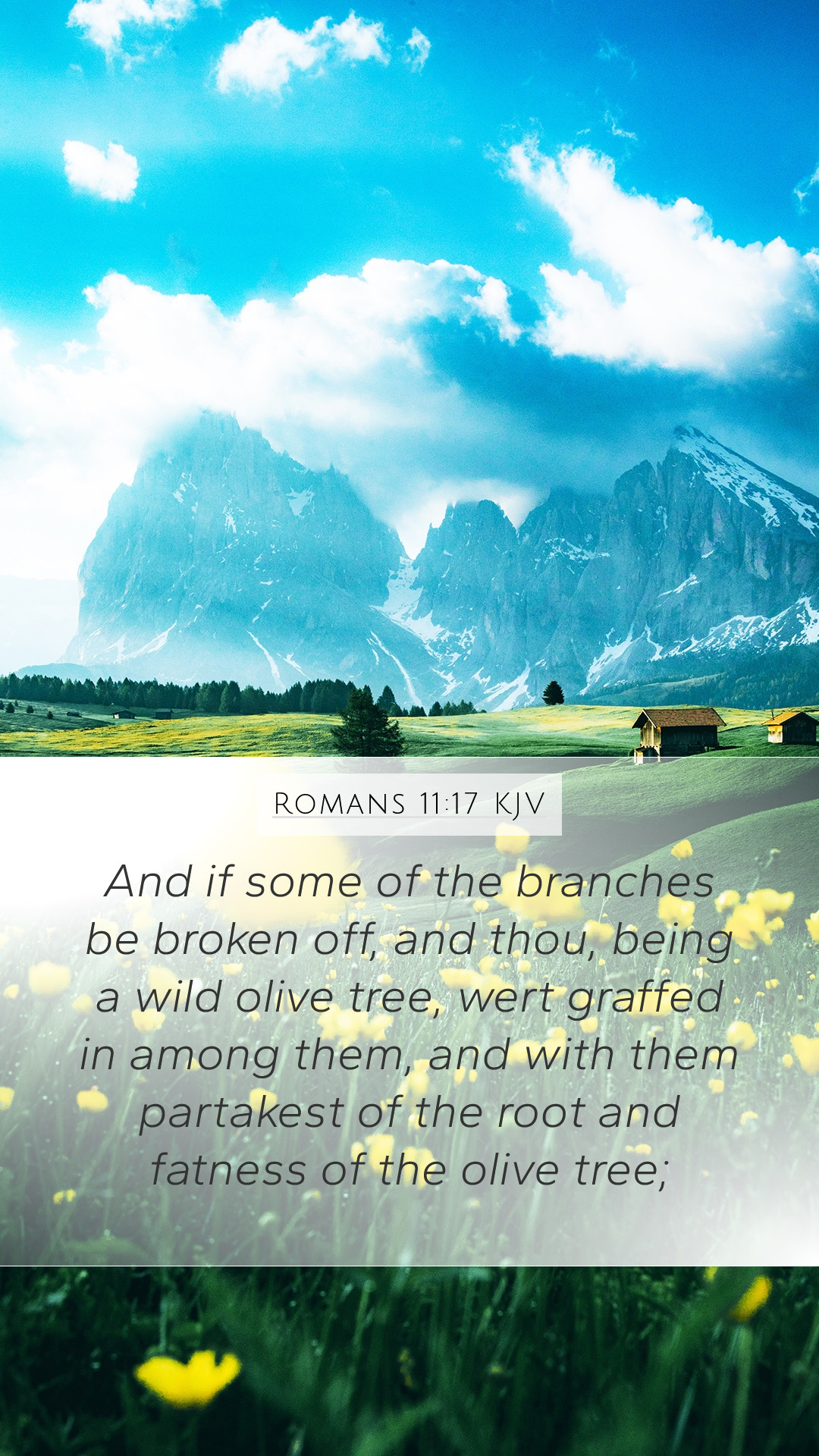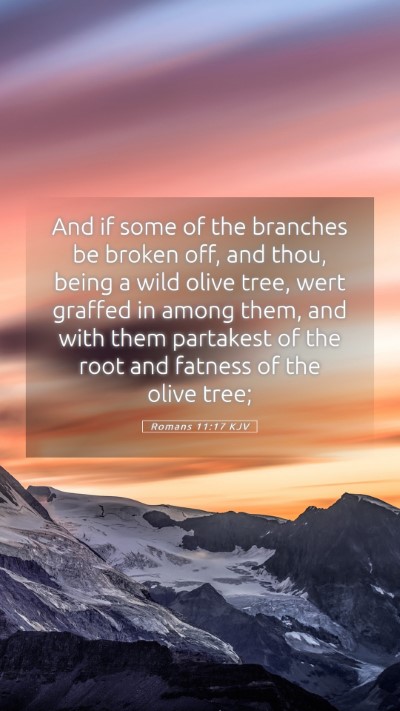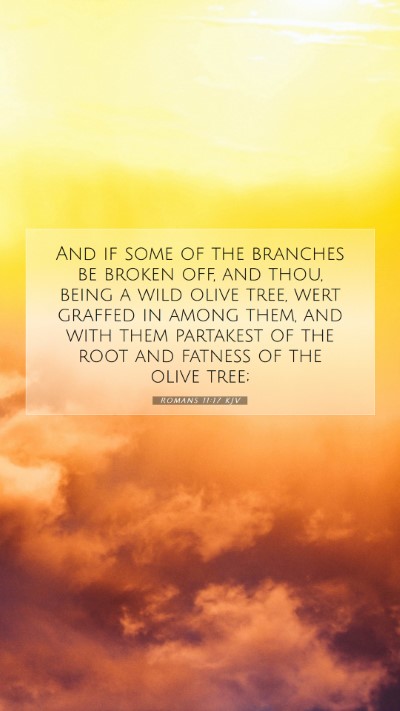Bible Verse Meaning: Romans 11:17
Verse: "And if some of the branches be broken off, and thou, being a wild olive tree, wast grafted in among them, and with them partakest of the root and fatness of the olive tree;"
Overview
This verse from Romans 11:17 is pivotal in understanding the relationship between Israel and the Gentiles in God's redemptive plan. It utilizes the metaphor of an olive tree to illustrate how Gentiles are incorporated into the blessings originally given to Israel. In biblical exegesis, this passage invites readers to reflect on themes of inclusion, grace, and the continuity of God's promise.
Bible Verse Interpretations
- Metaphorical Meaning: The olive tree symbolizes God's covenant people; branches represent individuals within that covenant. The breaking off of some branches indicates the rejection of many in Israel while the grafting of a wild olive tree's branches represents Gentiles who come to faith.
- Grace and Inclusion: This verse highlights God's grace, showing that salvation is extended to all, regardless of their heritage. It emphasizes the inclusion of Gentiles into what was primarily a Jewish covenant.
- Warning and Responsibility: Implicit in this metaphor is a caution for Gentile believers to remain humble, as their standing is due only to God's grace, not their own merit.
Insights from Biblical Commentaries
Matthew Henry's Commentary
Matthew Henry explains that the "branches" refer to the Israelites who are cut off due to unbelief. He emphasizes the importance of the root which symbolizes God's promises and the sustaining power of faith in the covenant. Henry's insights encourage believers to appreciate their position and not become arrogant towards those who are still in a state of unbelief.
Albert Barnes' Commentary
Albert Barnes points out the significance of the wild olive tree grafted into the cultivated olive, explaining the cultivation of Israel as God's chosen people and the wild olive as Gentiles. Barnes stresses that the blessing of participation in these spiritual riches is nothing short of divine grace, and he invites further reflection on the nature of God’s mercy.
Adam Clarke's Commentary
Adam Clarke elaborates on the grafting process, drawing parallels with agricultural practices of the time. He discusses the significance of being grafted in as evidence of both acceptance by God and the responsibility that comes with such a standing. Clarke encourages believers to live in a manner worthy of their calling, rooted deeply in the faith of the patriarchs.
Historical Context
This verse is situated in the broader narrative of Romans 11, where Paul addresses the fate of Israel and the inclusion of Gentiles in God’s redemptive plan. Understanding the historical context of Jewish-Gentile relations in the early church is vital for interpreting this passage accurately.
Applying Bible Verses to Daily Life
The implications of Romans 11:17 extend beyond theology; they are deeply practical. Believers are called to recognize the depth of grace that has allowed them to be part of God's family. This reflection can lead to a lifestyle marked by humility, gratitude, and a commitment to share the Gospel with others.
Related Bible Cross References
- Ephesians 2:11-13: Discusses how Gentiles were once far off and are now brought near by the blood of Christ.
- Jeremiah 11:16: The olive tree as a symbol of Israel, highlighting the prophetic significance.
- Romans 11:24: Expands on the metaphor of grafting and the potential for the original branches (Israel) to be grafted back in.
Conclusion
Romans 11:17 serves as a theological cornerstone within the New Testament that underscores the themes of inclusion and divine grace. Through understanding this verse, believers can gain insights into the nature of God's love and develop a responsibility toward their faith community, fostering a spirit of unity and humility.


